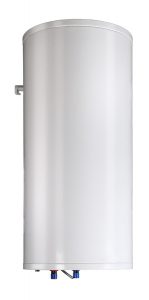
One of big advantages of having a boiler to heat your home is that boilers in general need fewer repairs than furnaces or heat pumps, the other common central heating systems. Why is thos? It’s because boilers have fewer mechanical moving parts. The lower number of mechanical parts, the less wear due to operation over the years. You can anticipate only having to make an occasional call for boiler repair in Brighton, MI, and you can expect to get 20 to 30 years of service from a well-installed boiler, which can be twice as long as the lifespans of heat pumps and furnaces.
Zero repairs, however? Probably won’t happen. Boilers still have mechanical parts, and they’re complex devices that can malfunction in different ways. A system that heats and circulates water comes with its own set of potential problems.
Let’s look at a few repairs your boiler might need:
Stopping leaks
A boiler should not leak. The system is designed to be airtight so oxygen cannot get in and create oxidization, which leads to corrosion. When you notice any water leaking from the boiler, any part of it, call for repairs right away. Boiler pressure problems like this can lead to larger system failures if ignored. The leaks need to be closed, the source of the leak located, and the lost water replaced. The leaks need to be closed, the source of the leak located, and the lost water replaced.
Lowering water pressure
When a boiler begins to make rumbling noises, it’s likely that it’s overheating. This will cause extensive damage to the system unless it’s stopped. Boiler overheating can become dangerous, so it’s critical to call a professional promptly. Technicians can discover the cause of the rise in heat and pressure and fix it. Technicians can discover the cause of the rise in heat and pressure and fix it.
Replacing corroded parts
If rust or other types of corrosion get into the boiler tank, it almost always means the boiler must be junked and a new one installed. However, if the corrosion is limited to parts that can be replaced, such as the heat exchanger, sometimes a repair professional can rescue the boiler.
Broken circulator pump
Your house has gone cold. The baseboard heaters and radiators no longer send out heat. But the boiler’s gas jets still come on. The problem may be with one of the few mechanical parts of the boiler: the circulator pump. This pump is responsible for sending the heated water from the tank around the house to the rooms and terminal points. If the pump breaks, no heat. Immediate boiler repair may be necessary. Fortunately, repairing or replacing the circulator pump is a straightforward job for professionals. Fortunately, repairing or replacing the circulator pump is a straightforward job for professionals.
Tank flushing
Sediment and limescale from the water may begin to settle along the bottom of the boiler tank. This restricts the boiler’s ability to heat up water and cuts into efficiency. Technicians can flush out the boiler system and put in new water to fix this.
Replace a burnt-out heating element
This only applies to electric boilers. Two heating elements warm the water inside the tank. If one of them fails, the water temperature will drop at the taps. An HVAC technician can handle the job of replacing the burnt-out heating element and getting the boiler back in shape.
You can count on our trained boiler experts to find out what’s wrong with your boiler and fix it fast.
Frequently Asked Questions
Question: What are some of the most common boiler repair needs?
Answer: Typical repairs include stopping leaks, lowering high water pressure, replacing corroded parts, fixing a broken circulator pump, flushing sediment from the tank, and replacing a burnt‑out heating element (for electric boilers).
Question: Why do boiler leaks occur and how serious are they?
Answer: Leaks can stem from faulty seals, loose pipe joints, or corrosion. Even small leaks should be addressed promptly because they undermine system pressure, cause water damage, and can accelerate further corrosion or component failure.
Question: What causes a boiler’s water pressure to rise and require intervention?
Answer: Overheating, a malfunctioning pressure relief valve, or expansion vessel issues may push pressure too high. Technicians diagnose the root cause and adjust or replace components to restore safe pressure levels.
Question: When is it necessary to replace parts affected by corrosion?
Answer: If rust or corrosion is limited to replaceable parts like the heat exchanger or valves, those parts may be swapped. But if corrosion is widespread—especially in the main boiler tank—the whole unit often needs replacing.
Question: What issues can a failed circulator pump and sediment build‑up cause?
Answer: A failed circulator pump prevents heat from circulating, so rooms get cold even if the boiler is running. Sediment and scale reduce efficiency by limiting heat transfer. Flushing and pump replacement are common fixes.
First Choice Heating & Cooling offers boiler repair service in Fenton, Linden, Holly, and the Surrounding Areas. If your home had a voice … it would call First Choice!
